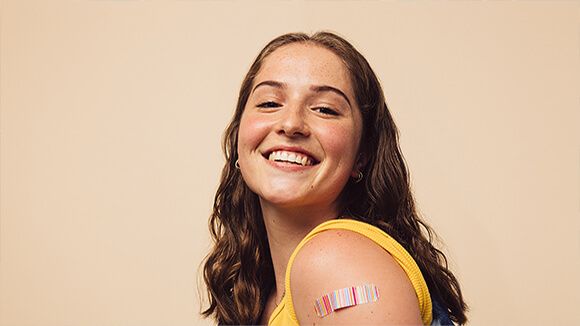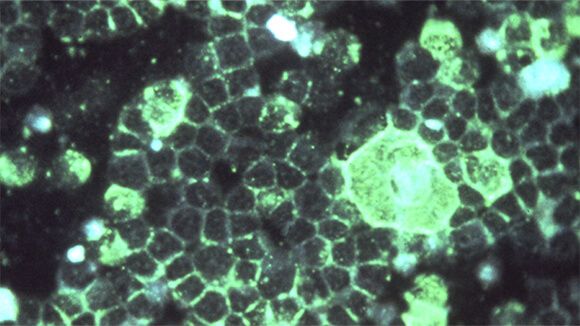Advancing Care for Pediatric Growth Hormone Deficiency
Growth hormone deficiency (GHD) is a rare disease that can take a substantial toll on children living with the condition and their families.1 Without treatment, affected children will have persistent growth attenuation, very short height in adulthood, and puberty may be delayed.1 Children may also experience other problems with physical health and mental well-being.1,2
The earlier GHD is identified, and consistent treatment is provided, the better a child’s chances will be to achieve near- normal height.1
Prior to once weekly options, for decades, children living with GHD have been treated with daily injectable treatments, which often are administered for several years.3 While effective and safe, daily injections require patience, flexibility, and can take an emotional toll on parents and caregivers.4,5,6 In fact, it’s estimated that up to two-thirds of children with GHD may miss more than one daily dose per week, which could negatively affect treatment outcomes.4
Pfizer has been focused on solutions to help minimize the disease management burden and to increase treatment adherence for children, their caregivers, loved ones, and healthcare providers.
In February 2022, Pfizer received marketing authorization in the European Union (EU) for NGENLA® (somatrogon), a once-weekly injection to treat children and adolescents from three years of age with growth disturbance due to insufficient secretion of growth hormone.7,8 NGENLA provides pediatric patients, their caregivers and healthcare providers with a treatment option for GHD that reduces the frequency of required injections from once daily to once weekly. 7,8
Pfizer has been focused on solutions to help minimize the disease management burden.
“Growth hormone deficiency takes a substantial toll on children living with this rare disease and their families, and for many years, daily injections have been the standard of care, adding to the challenges they face,” noted a Pfizer leader at the time of approval. “With NGENLA, we are proud to continue to advance the care of children in Europe who are impacted by growth hormone deficiency with a new, longer-acting option that significantly reduces treatment burden from once-daily to once-weekly injections.”
For decades, Pfizer has remained committed to helping the GHD community. This commitment will continue as we work to deliver this treatment, addressing unmet needs for the pediatric GHD community and raise awareness for this rare disease.
For full efficacy and safety information about NGENLA, please see the full prescribing information here.
- Brod, M, Højbjerre, L, Alolga, SL, Beck, JF, Wilkinson, L, Rasmussen, MH. Understanding treatment burden for children treated for growth hormone deficiency. The Patient-Patient- Centered Outcomes Research. 2017;10(5):653-666.
- Toft D. Growth Hormone Deficiency Basics. EndorineWeb. https://www.endocrineweb.com/conditions/growth-disorders/growth-hormonedeficiency-basics. Accessed October 25, 2022.
- Rose S. Cook D. Fine M. Growth Hormone Therapy Guidelines: Clinical and Managed Care Perspectives. Am J Pharm Benefits. 2014;6(5):e134-e146.
- Cutfield WS, Derraik JG, Gunn AJ, Reid K, Delany T, Robinson E, Hofman PL. Non-compliance with growth hormone treatment in children is common and impairs linear growth. PLoS One. 2011; 6(1):e16223.
- Koledova, E, Stoyanov, G, Ovbude, L, Davies, PS. Adherence and long-term growth outcomes: results from the easypodTM connect observational study (ECOS) in paediatric patients with growth disorders. Endocrine connections. 2018;7(8):914-923.
- Marini, MG, Chesi, P, Mazzanti, L, Guazzarotti, L, Toni, TD, Salerno, MC, Officioso, A, Parpagnoli, M, Angeletti, C, Faienza, MF, Iezzi, ML, Aversa, T, Sacchetti, C. Stories of experiences of care for growth hormone deficiency: the CRESCERE project. Future Science OA. 2016:2(1). doi.org/10.4155/fso.15.82.
- NGENLA EPAR – Product Information can be found here: https://www.ema.europa.eu/en/documents/product-information/ngenla-epar-product-information_en.pdf
- Pfizer.com. Pfizer and OPKO’s Once-Weekly NGENLATM (somatrogon) Injection Receives Marketing Authorization in European Union for Treatment of Pediatric Growth Hormone Deficiency. https://www.pfizer.com/news/press-release/press-release-detail/pfizer-and-opkos-once-weekly-ngenlatm-somatrogon-injection. Accessed October 27, 2022.


